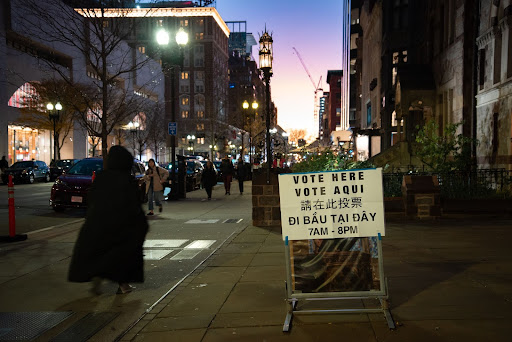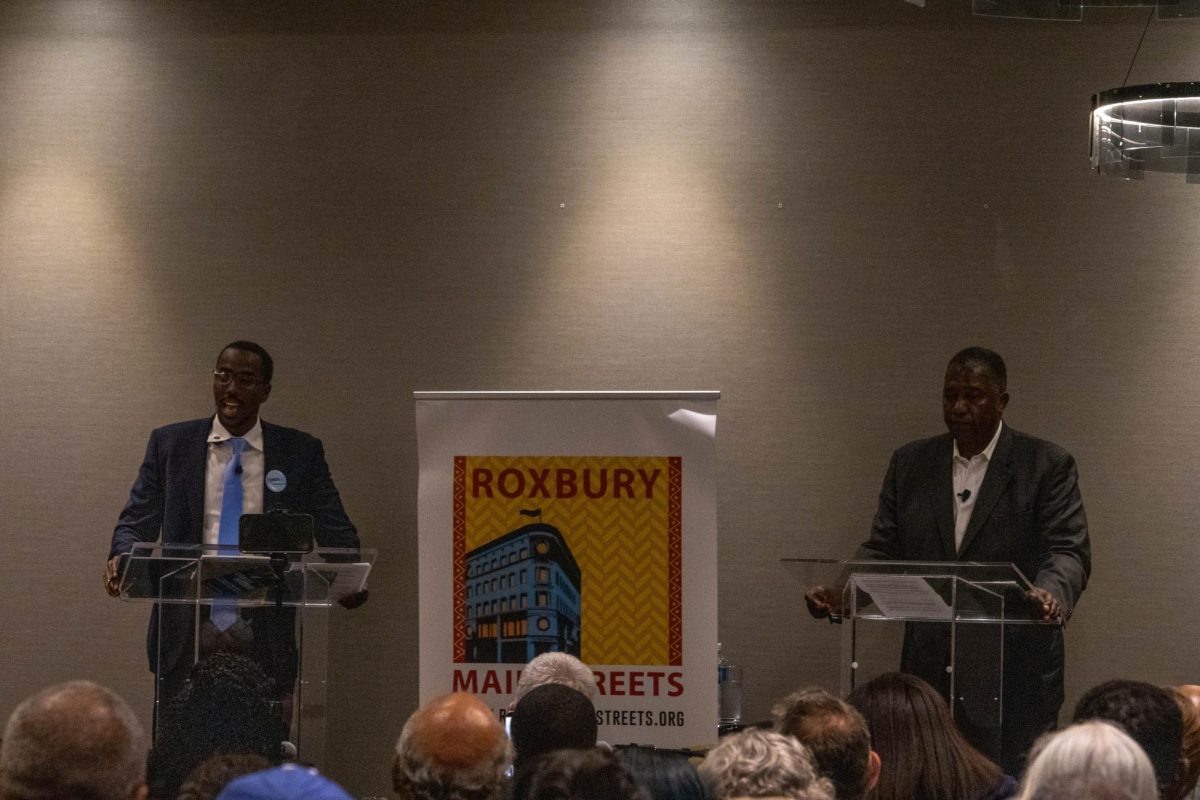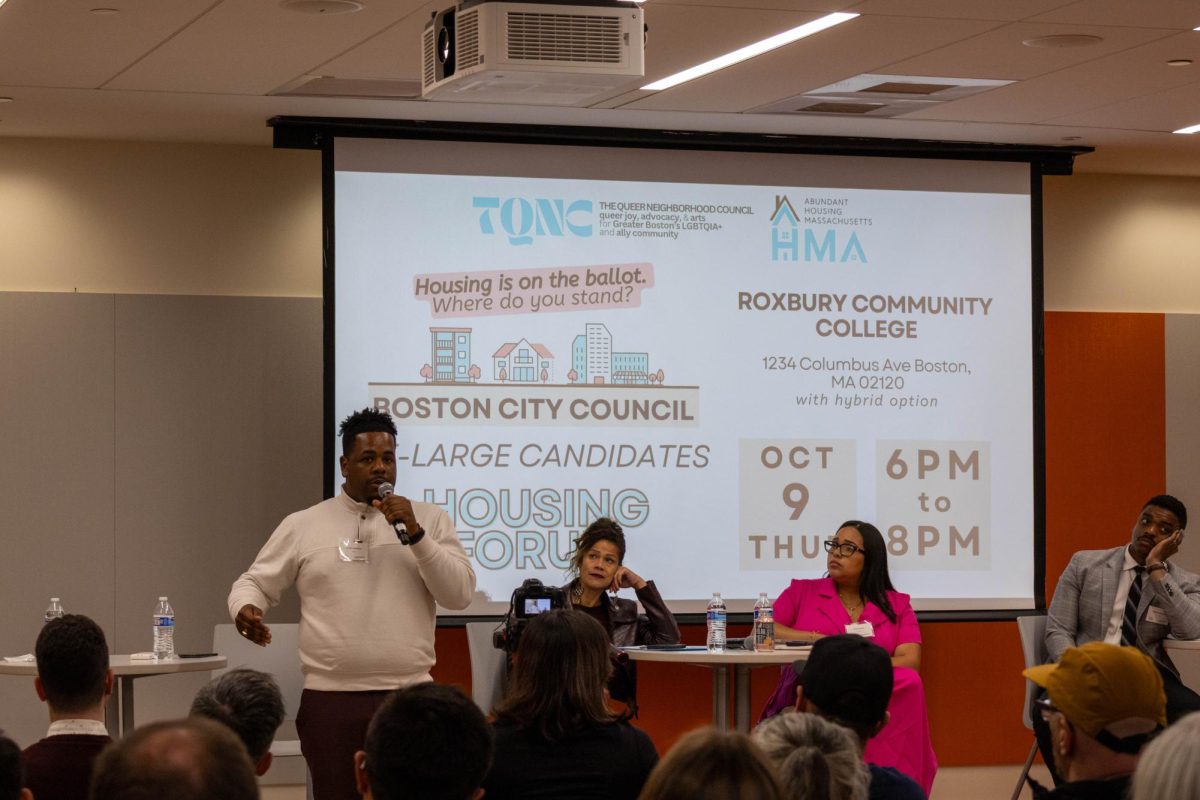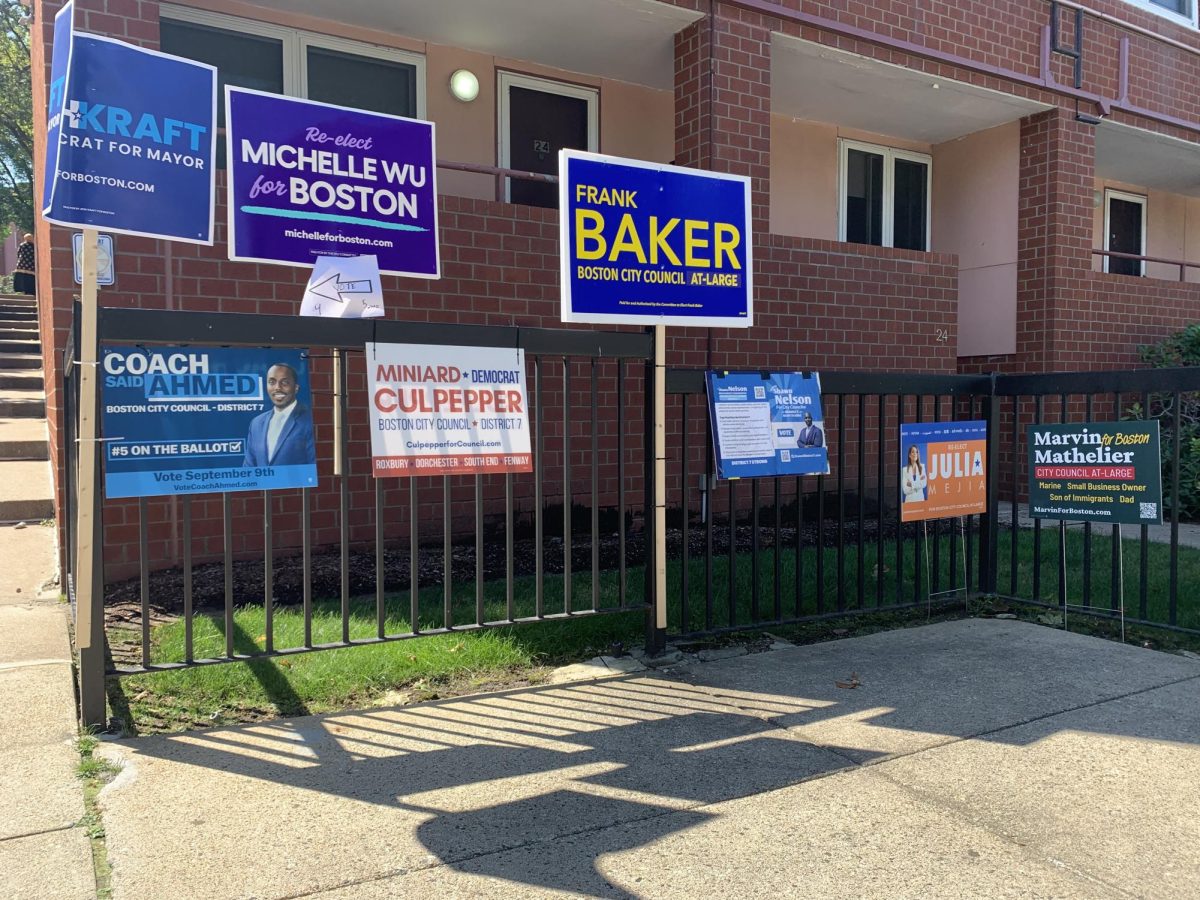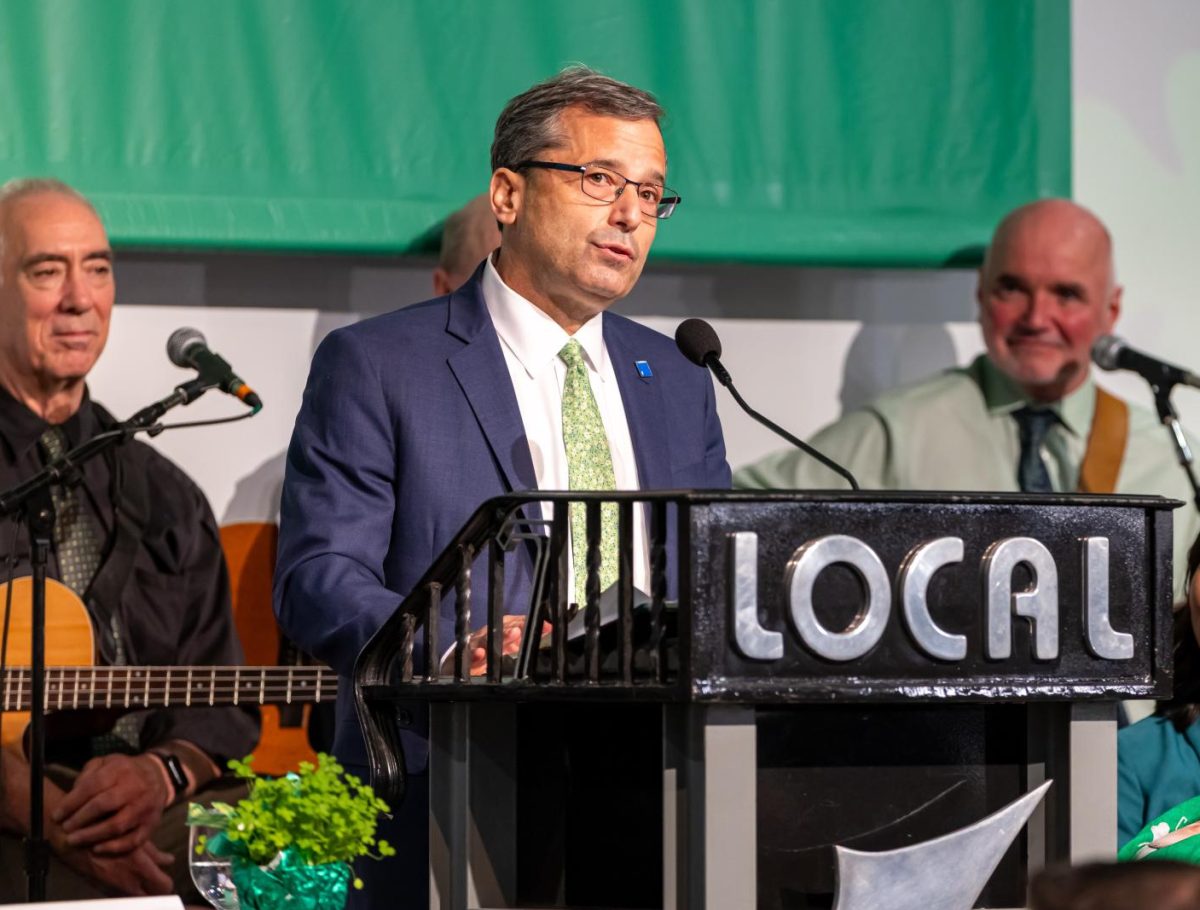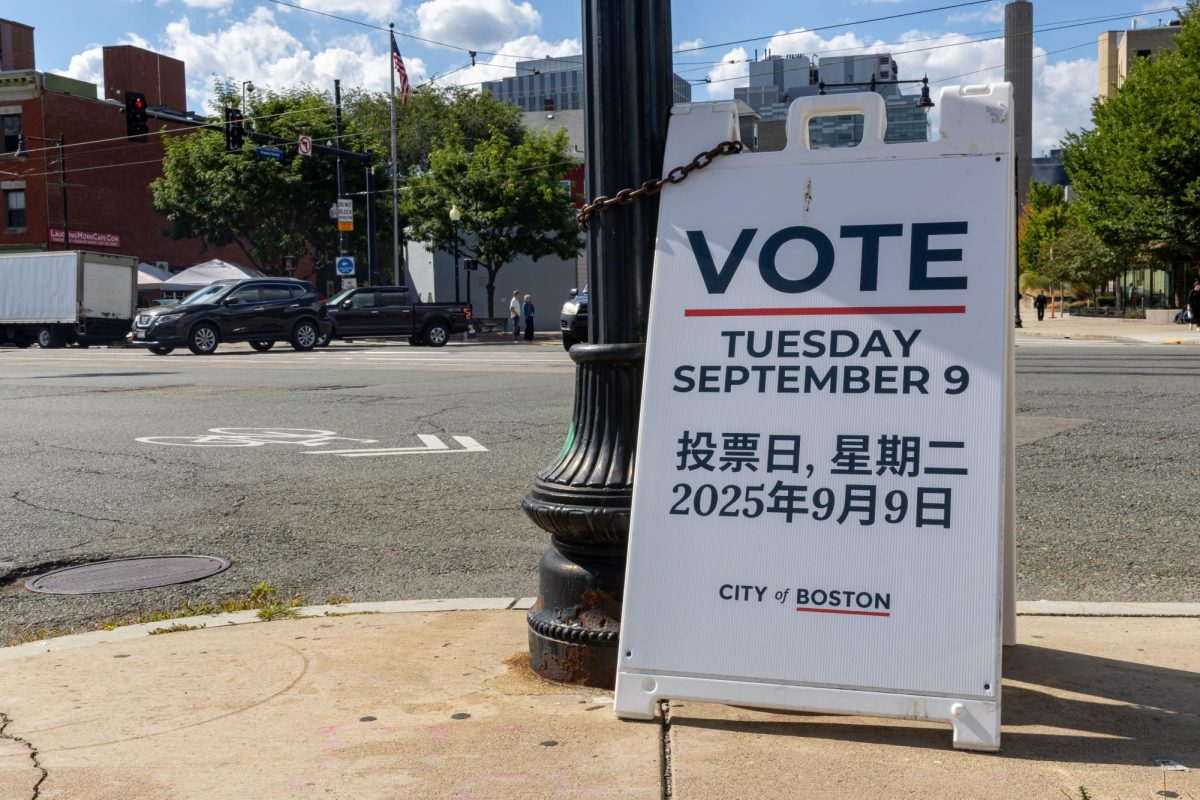Boston voters are heading to the polls Sept. 9 to narrow the field of candidates and determine who will be on the November ballot. (Check out The Scope’s comprehensive voting guide.) But while municipal elections have a direct impact on their local communities, they generally have the fewest votes cast of any government election.
“The municipal election is probably the most impactful to everyday life for folks, but it’s also the election that most people do not turn out for,” said executive director of Massachusetts Voter Table, Shanique Rodriguez.
Geoff Foster, executive director of Common Cause Massachusetts, said the same.
“Most folks tend to turn out for national elections, and then it starts to reduce for statewide elections, and then gets even lower for local elections.”
Municipal elections address issues ranging from adding stop signs to zoning reform.
“It’s so important that people engage in these races because that is the most immediate impact on your everyday lives—from the schools your children go to, to what they’re being taught in their classrooms, to how often your street gets plowed—these are all political decisions being made by your municipal leaders,” Rodriguez said.
Yet residents often don’t show up to cast their votes for municipal elections.
“In Massachusetts, especially in our BIPOC low-income communities … these are the elections where we see turnout being somewhere between 10 to 20%, which is incredibly low when most of these municipalities have nearly 80 or 90% of their residents registered to vote,” said Rodriguez.
Municipal elections are also where many politicians start their careers. Voters who pay attention to these candidates are introduced to their potential future governors and congressional representatives. Ayanna Pressley became the first woman of color elected to the Boston City Council in 2009 and went on to serve as a congressional leader, still representing Massachusetts.
“[City council seats are] very different from statewide seats,” said Rodriguez. “Folks who live in congressional districts or a state senate district might be represented by someone who doesn’t live anywhere near them, but in a municipal election, these individuals that you’re electing probably live on the same block as you, go to the same grocery stores as you and live in the same communities.”
For Boston parents, the newly elected mayor’s school committee appointments are something to pay attention to as well. The school committee designs the student curriculum, negotiates teachers’ salaries, creates after-school programs and more.
Many factors contribute to low voter turnout for these elections, from a lack of campaign messaging to the specific voting registration laws that disproportionately impact low-income and communities of color. Voting advocacy organizations, such as the Massachusetts Voter Table and Common Cause Massachusetts, are actively working to improve voter engagement throughout the state through legislative and grassroots organizing efforts.
Boston City Council is actively working to implement ranked-choice voting, a mechanism by which voters rank candidates in their preferred order, for future municipal elections. Ranked-choice voting has proven to increase representation at both the state and local levels.
“It strengthens representation because of the way votes are tabulated: If a voter’s first pick doesn’t end up being the winner, the winner might have been their second or third pick,” said Foster. “It gives voters a stronger sense of agency over the elected official and a stronger sense that they’re being represented.”
There is also a greater opportunity for candidate collaboration with ranked-choice voting. Candidates may campaign or run together, creating “a level of camaraderie that changes the political landscape,” Rodriguez said. This not only broadens the possibilities for voters, but also for new candidates to run.
“Candidates of color, who might very well not have the largest bank account to run full-on campaigns at the scale that an incumbent might, may feel that they have a better chance in the options of ranked-choice voting,” said Rodriguez.
For now, Bostonians must focus on casting their votes in the preliminary elections next week and making their voices heard.
“When you turn out to vote in a local election or in a preliminary election, you’re not just choosing a candidate, but establishing a reputation in your community for being a voter with power … it’s on all of us to send a message to our community that we’re paying attention and that we’re engaged at all levels,” said Foster.


